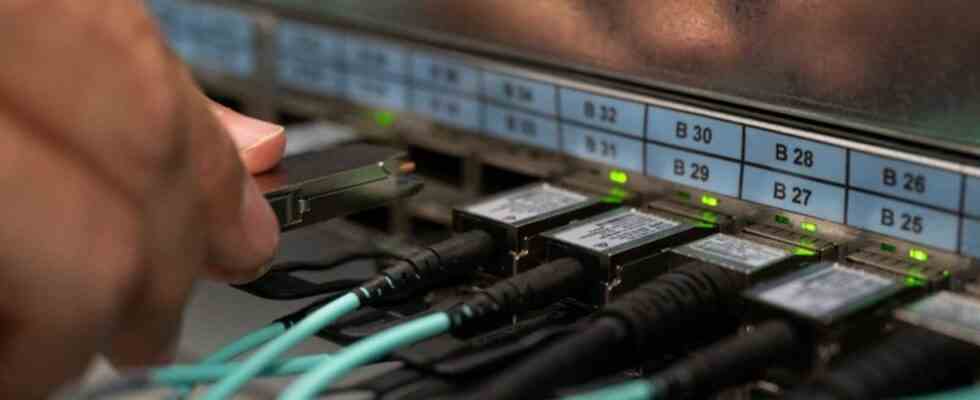digital transformation
Survey: No boost in digitization by traffic light government
At the end of 2021, shortly after the federal elections, 82 percent of the decision-makers still believed in a digitization push by the traffic light government. photo
© Marijan Murat/dpa
Digitization can make going to the authorities or going to the doctor much easier. However, much is still analog in Germany. This is also due to the inaction of politicians, as many people think.
According to decision-makers, the governing coalition of SPD, Greens and FDP has not yet triggered a digital push. This shows a survey published on Wednesday by the opinion research institute Allensbach on behalf of the ESCP Business School Berlin. In it, four out of five of the 500 leaders from politics and business surveyed (83 percent) take the view that the government made up of SPD, Greens and FDP has so far made no better progress in digital change than the grand coalition before it.
At the end of 2021, shortly after the federal elections, 82 percent of the decision-makers still believed in a digitization push by the traffic light government. Even then, the majority of them (94 percent) were of the opinion that Germany was lagging behind in many areas of digitization. According to the current survey, as many as 96 percent now believe that.
Allensbach managing director Renate Köcher explains the government’s delay with unforeseeable crises, among other things. As a result of the war of aggression against Ukraine in 2021, energy supply, for example, was an important topic on the agenda of politicians. “As a result, other topics that actually took up a lot of space on their agenda were pushed into the background,” said Köcher at a press conference – including digitization.
Professor: No shortage of innovative ideas
However, not only executives believe that technological progress is indispensable. In a population survey on the same topic, 77 percent of those questioned were of the opinion that digitization will play a major to very major role in Germany in the future. According to the survey results, important progress can be made through digitalization, especially in administration (80 percent), in the health sector (72 percent) and in industry (70 percent).
According to the university professor Philip Meissner from the ESCP Berlin, for a “digital administrative turnaround”, all state services must be offered digitally and ideally on a central platform. Digitization also harbors huge opportunities in the healthcare system, for example through digital sick leave. According to Meissner, there is no shortage of innovative ideas, but there is too often a lack of implementation: “It is not enough to fund cutting-edge research, we must also ensure that these research results are then transferred to marketable products and in companies.”
The FDP had put digitization at the center of their federal election campaign in 2021. At the time, 29 percent believed that this party would actually drive digitization forward – the highest figure among all parties. In the current survey, however, it is only 16 percent. 11 percent of the population see the CDU and CSU as the driving force in digitization issues, and 6 percent see the SPD in this role.
According to the survey results, not all sections of the population primarily associate positive things with digitization. While higher social strata think of digitization primarily in terms of the future (89 percent) and opportunities (82 percent), every second respondent from a lower stratum (51 percent) associates the term with job loss and many with surveillance (76 percent).

